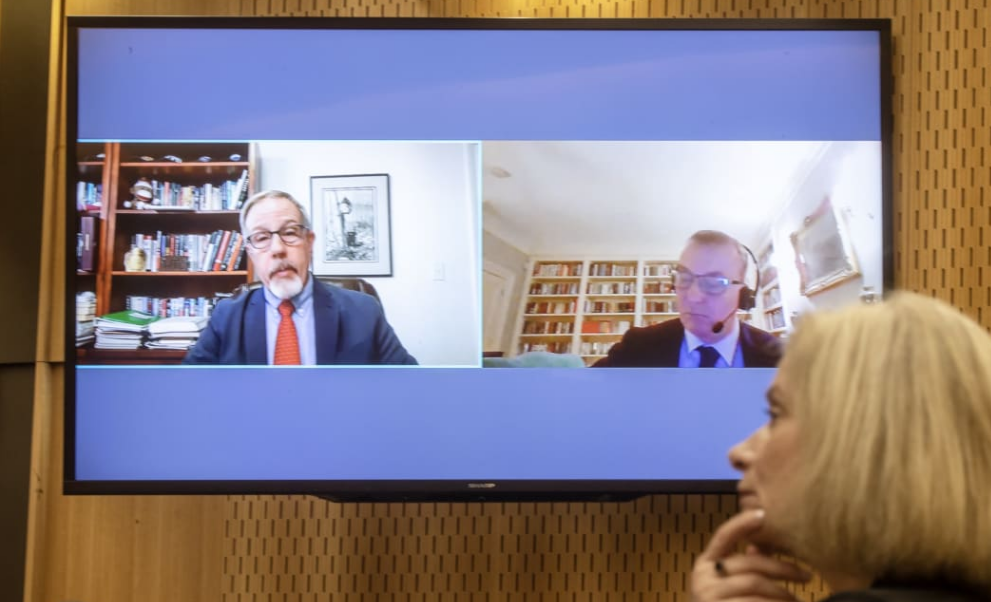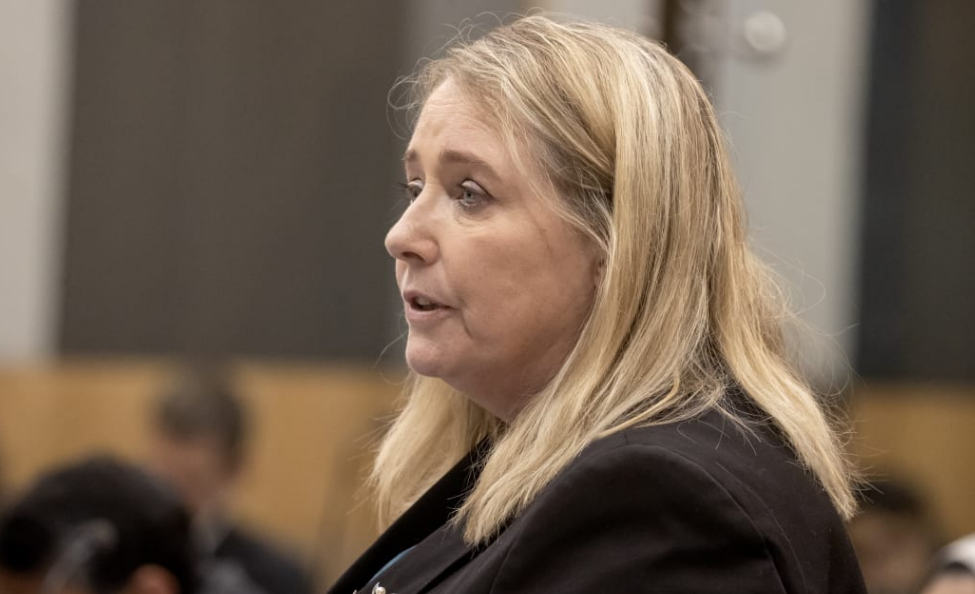
Dr Frank Straub began his law enforcement career in the 1980s and was involved in rescue operations in the 9/11 terror attack on New York skyscrapers the Twin Towers in 2001.
He is now the senior director of violence protection for a non-profit organisation.
Dr Straub, alongside Scottish counter-terrorism expert Scott Wilson, co-authored a report about the Christchurch terror attack on 15 March 2019.
Both experts gave evidence via an audio-visual link on Thursday during the inquest into the deaths of 51 worshippers at Al Noor Mosque and Linwood Islamic Centre.
Straub told the Coroners Court it was not possible to ever be truly desensitised to situations like the mosque shootings but training first responders in "as realistic as possible scenarios" could help them flip a switch in their brain and deal with it.
He said the United States "had to learn the hard way" how best to deal with mass casualty incidents.
School shootings, such as the tragedy at Columbine High School in Colorado in 1999, had helped law enforcement improve protocols overtime, Straub said.
Nowadays, the first officer on any scene has the training required to go to the sound of gunfire and "neutralise" the assailant or assailants.
"It is our theory that we can't lose time; the shooter is on location, the shooter has time on their side and tactical advantage and it's incumbent upon us to stop that as soon as humanly possible, even if it means that we don't get to go home to our families."
Wilson said most police in the United Kingdom were not generally armed - but those that were had extensive training and were usually very quick to respond to serious situations.
He said officers first on scene could not "sit and do nothing". It would not be a good public perception if shots were still being heard on scene and police were not trying to stop them.
Straub said he could not agree with New Zealand Police protocol that it was not recommended a single officer enter a scene with an active shooter due to the extreme risk involved.
He did not believe an unarmed officer should go into a scene - but said all needed to be trained and equipped to engage as a solo officer, if necessary.
Regarding the Christchurch attack, if police arrived on scene and the terrorist was still there, they should have been able to move forward straight away, Straub told the inquest.
"I believe it's law enforcement's responsibility and we take an oath to protect the lives of others. In this case, innocent individuals were being slaughtered by an individual with a high-powered rifle.
"I believe that is was law enforcement's responsibility, in that they were armed, to attempt to neutralise or contain the individual should he have been there at the time."
Straub said all first responders who attended the mosque scenes were brave and courageous, acting in a way consistent with their training.
But he said learnings could come from this to strengthen any future response that "hopefully change outcomes in the future".

Leaving victims alone in mosque 'unacceptable'
Both experts said it was "unacceptable" the victims at Al Noor Mosque were left alone for more than 10 minutes after the first police team entered the building.
Wilson said he could have understood it if police skills were needed elsewhere and paramedics were left inside with them, but there was no excuse for leaving the victims with no-one.
Straub said he agreed with Wilson: "If that's the situation, it would have been unacceptable".
The experts also said community members having basic life-saving skills had proven effective in mass casualty incidents in their respective countries.
Straub said the US has an "aggressive" campaign called Stop the Bleed, where even children were taught life-saving methods. It went hand-in-hand with another campaign to teach people resuscitation.
Wilson said the UK had Citizen Aid where members of the public could do "something rather than nothing".
Questioned by counsel for families Kathryn Dalziel if people from within the mosque should have been allowed back inside to help provide medical aid, both experts said it depended on the situation.
The inquest earlier heard people who were at Al Noor Mosque were told to leave the grounds - and even threatened with arrest - when they asked to go back inside and help the dying.
Dalziel also described a woman having to leave her husband in Linwood mosque. She said she had to ask then-Prime Minister Jacinda Ardern 24 hours later if she knew if her husband had survived.
Straub said he had read witness statements, and they were "heartbreaking".
"I do think that people inside the mosque being allowed in assisting with the treatment of people inside the mosque is different than people from outside the mosque coming in, or to any location, because you don't necessarily know who those people are and God forbid, they're part of the plot.
"Controlling the scene is critically important to the safety of everybody inside the scene and it's also critically important to the post-incident investigation."
But unless they were interfering in the emergency response, he thought people already inside should be allowed to stay.
Wilson said if they were already in the scene, they had "a part to play" but people could not start being allowed into the scene.
"But if they're in the scene and they're with a loved one, I would encourage they should be there to comfort the loved one and give assistance or be with them to the end."
The inquest continues.












